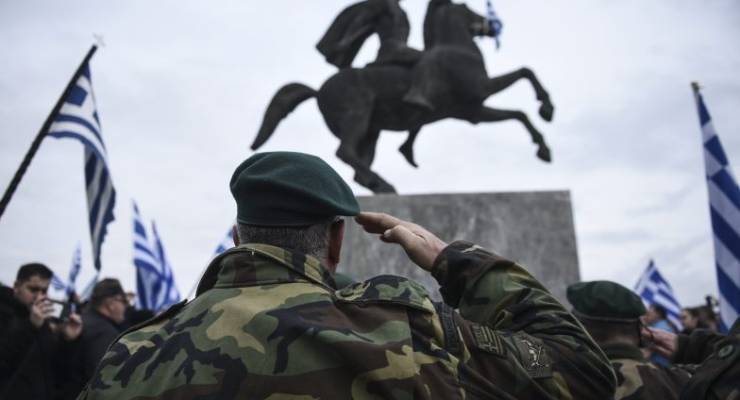
Over the past week, Greek nationalists have clashed with riot police near the village of Pisoderi in the north of Greece. What brought these protests — along with several more in both Greece and Macedonia — about?
It was an agreement signed this week by the governments of Greece and Macedonia to rename the latter country the Republic of Northern Macedonia. Greek Prime Minister Alexis Tsipras called this “a brave, historic, and necessary step for our peoples”, while Macedonia Prime Minister Zoran Zaev called upon both countries to “step out of the past and look to the future”.
But as the clashes show, Tsipras and Zaev have faced opposition from within their countries.
So, why all this enmity over the name?
As with much of the conflict in the Balkans and former Yugoslav states, a combination of nationalist movements, the interests of various ethnic groups, and historical ambiguities around borders are at the heart of the issue.
The Republic of Macedonia came into being in September 1991, as Yugoslavia crumbled around it. While it was able to avoid the wars that engulfed the other former Yugoslav states for much of the 1990s, the name they had chosen immediately became a point of contention with Greece. The Greeks have long insisted that in calling themselves Macedonia, they are implicitly endorsing irredentist sentiments towards Greece’s northern provinces of the same name, and the population there who, though unrelated to the Slavic population of the republic, identify as Macedonians. Further, the Greeks have accused their northern neighbours of appropriating many symbols of Greek culture, such as the Vergina Sun (which initially grace Macedonia’s flag) and Alexander the Great (whose statue stands in the Macedonian capital of Skopje). Greece claim these are concessions to the nationalist Macedonian movement known as Greater Macedonia.
What is Greater Macedonia?
Greater or United Macedonia is an idea that sprung up in the 19th century. This is an movement that seeks to unite the ethnically Macedonian populations in the surrounding countries of Kosovo, Serbia, Albania, Bulgaria and Greece — with the capital in the Greek port city of Thessaloniki. On top of the symbolic and historical allusions, of primary concerns to the Greeks was the following article of Macedonia’s constitution:
(1) The Republic cares for the status and rights of those persons belonging to the Macedonian people in neighbouring countries, as well as Macedonian expatriates, assists their cultural development and promotes links with them.
(2) The Republic cares for the cultural, economic and social rights of the citizens of the Republic abroad.
What has the Greek response been?
Following three years of disputation with Greece, Macedonia ditched the Vergina Sun from its flag in 1995, and the two countries struck an interim accord. This brought about a queasy and unstable peace, which has crumbled altogether several times since. Macedonia has been chastised for continuing to build “provocative” statues of Alexander the Great and Philip of Macedon, while the International Court of Justice ruled in 2011 that Greece had breached the accord by vetoing Macedonia’s application for NATO membership. In the midst of the early dispute between the two countries, the United Nations settled on referring to”the former Yugoslav Republic of Macedonia” when the new country joined in 1993, though 140 countries now recognise FYROM as simply the Republic of Macedonia.
What happens now?
In return for Macedonia adding “Northern” to their name, Greece have agreed to stop blocking Macedonia’s attempts to join NATO and the European Union. However, the deal is not quite done and dusted. It still has to be approved by the Greek Parliament and put to the Macedonian people as a referendum. Macedonian president Gjorge Ivanov has said he will not sign the deal; although this will not, in the end, make much difference. However, given the protests in both countries, and the fact that Greece’s opposition mounted an ultimately unsuccessful no confidence vote in Tsipras’ government over the deal, that may not end up being straight forward.








Another triumph for the hapless Tsipras. Trying to sort out a few thousand years of trouble and strife while Greece continues to suffer.
The quarrel over Macedonia-Skopje’s name is farcical. In more civilised Africa three countries are called Guinea without any dispute between them and two countries manage to be called Congo without fighting over it. The republic of Azerbaijan has a common border with the Iranian province of Azerbaijan and the grand duchy of Luxemburg borders the Belgian province of Luxemburg, also without quarrelling over it. But somehow the Skopje-based republic calling itself Macedonia is a mortal blow against the neighbouring Greek province. I don’t know. How has Greek statecraft fallen! Can Yiannis Varoufakis explain it?
So it’s kind of like the China Tibet problem in reverse?